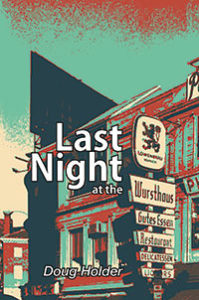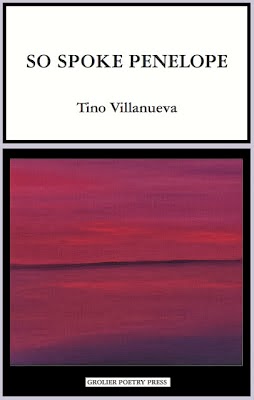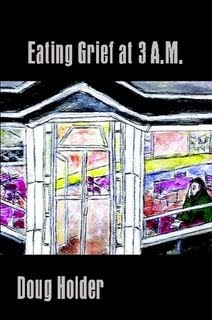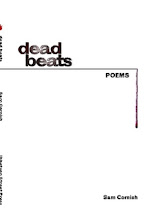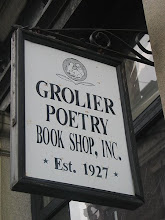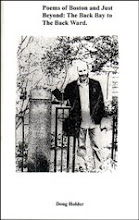Saturday, August 23, 2014
About the Seamus Heaney Memorial Reading: On Wednesday the 27th of August 2014 at 7:30 pm
About the Seamus Heaney Memorial Reading
On Wednesday the 27th of August 2014 at 7:30 pm
At First Church Congregationalist
11 Garden Street by the Sheraton Commander off of Harvard Square
by Michael Todd Steffen
The reading to honor Seamus Heaney this Wednesday came about in a very simple way. We had a reading this past May in the Hastings Room of the church. That reading went well and drew a lot of compliments for the space. Steve Brown, who helps organize events at the church, brought up the idea of doing another reading this summer, for late August. Wondering how to organize it, which readers to choose, and being an admiring reader of Heaney’s, I proposed that we make the reading to remember him around the one-year anniversary of his death, August 30 2013. Then I’d know I was looking for Irish-American poets, and I had Joan Houlihan and Daniel Tobin in mind right away. Joan brought up the excellent suggestion that we invite Fred Marchant who knew Seamus Heaney. I also for my own reasons wanted to have Doug Holder there as a reader. And Alex Green who runs Back Pages Book Store and Publishing in Waltham will be making a presentation of a fine press broadside he did of a poem given to him for that purpose by Heaney.
The poets will be reading, I believe, something of Heaney’s as well as from their own work. Each of the readers has something unique that relates to Seamus’s poetry. Notions or themes will sort of guide the event, like the mystery and inspiration of craft, of written language and poetry, the “living past,” what the voice of peace says in a time of war and violence, and the poet of his times relating tradition on his individual terms. Any one of the readers would have been sufficient as a feature reader. They are all really that good. But since it was a special occasion, I just reached out to the people I felt I knew well enough to invite. The Boston-Cambridge area must have many many poets worthy of such an occasion. Maybe the readings at the Hastings Room will be extended, and we’ll be able to do this again, and bring more dimension into Heaney’s legacy in the area, but nothing like that has been projected yet.
Our readers each have exciting new work to share, published this year or forthcoming. I think what Joan Houlihan has done in her narratives The Us and Ay speaks so relevantly and freshly to remind us who we are beneath our layers of historical expectations (and excuses), which Heaney expressed so well in his archeological poems. I’m also very excited about having Daniel Tobin who has written so extensively and insightfully in his book Passage to the Center: Imagination and the Sacred in the Poetry of Seamus Heaney. Daniel also has just this year put out a very powerful book of his own poetry called The Net. I think Fred Marchant has something special in the way of reminiscence and homage for Heaney. Fred has a book forthcoming from Graywolf Press, The Later Day, in 2016. The evening has a promise of wonder about it very suitable for Heaney who was a much endeared poet and individual to the Harvard community, to Ireland, and to the world. Doug Holder has had a new collection, Eating Grief at 3 A. M., released this year by Muddy River Press. Holder’s poetry in its own way, as it has been described “spare yet rich,” I think evokes the epigramist’s rigor that utterly haunts so much of the silence in Heaney’s riddling poems. Alex Green’s broadside and his story about getting this poem from Heaney will fascinate us all. Everybody who wants to celebrate Heaney’s memory and poetry is more than welcome. That’s what it’s all about. It’ll be a great time.
Friday, August 22, 2014
Fishing On the Pole Star Poems by Paul Pines
Fishing On the Pole Star
Poems by Paul Pines
Collages by Wayne Atherton
Dos Madres Press
Loveland, Ohio
www.dosmadres.com
ISBN 978-1-939929-11-2
94 Pages
Review by Dennis Daly
Have writer’s block or artistic ennui? Find yourself bereft of inspiration and adrift in life’s doldrums? My advice: go fishing! Even better, get Paul Pines’ new book of poems, Fishing on the Pole Star.
Pines turns this wonderfully chronicled fishing voyage with a family of friends through the Bahamian isles inward, across lines of deeper self-knowledge and surprising allegory. Dream-like collages and a contrast of gorgeous maps, both antique and modern, add a soulful surrealism that seems magically appropriate.
Many trolling poets would be more than satisfied with the transfixing images, ethical considerations, and iridescent lines that these pieces serve up, but Pines is after bigger fish. He seems intent on examining his sense of self and beyond into the deeper ocean of poetry and archetypes.
Early on, in a poem entitled A Family At Sea, the poet confronts the ethics of killing fish. He recalls,
stalking a yellow tail family
around a coral head in Belize
the moment when father
falling behind his wife
and kids turned
to face me
gills puffed out
his helpless fearlessness
against my spear
The use of the provocative word “wife” gives me some pause. But this goes beyond anthropomorphic considerations. Here the poetry confronts the nature of existence and at this node of consciousness the poet-fisherman recognizes himself. Other examples later on in the same poem elaborate on this singular lesson. One of them strangely happens in dreamtime.
Judith dreamed she
was reeling in a dolphin then became the dolphin
being reeled
relives how it felt to be gaffed
hauled into the boat
flopped on her side
gasping in the air
as fishermen
comment
on her beauty
And, yes, I see that there is obviously a lot more going on in these lines.
Uninhabited Concepcion Island offers sanctuary to birds on its tiny area of 2 miles by 2.7 miles. In his poem by the same name Pines meditates on the changing nature of conscious reality. His phrasing in the heart of the poem is quite lovely.
all worlds are
small worlds
clustered
or standing alone
each with
its own evolutionary
history
atolls
of longing
the hardened shale
of volcanic anger
In the third section of the poem Live Bait Buddha Pines details perfectly the frustrations of artistic creation. He’s working with live bait and fishing for that moment of inspiration that all poets seek or should seek.
suddenly
a hit
I put the reel in free spool
prepare for the impact
its furious weight
as I do when trolling
for a poem
before the line goes slack
and I pull up
what the shark has left
ragged remains
Mysticism of a sort rears its head in Pine’s poem entitled Crooked Island Passage. Translucent lines troll the oceanic darkness for divinity’s fire. Dolphins and their lovers respond, then are hooked and released. The piece opens with a religious connection,
Caleb swims
with Eagle Rays
in formation off Cape Verde
long tails and wings
like Tibetan temple flags
unfold to include him
in their play
the leader
eye to eye
at his mask
coveys
silent acceptance
of an alien species
Without any doubt the poem Marlin Strike tail walks the water as the climatic piece in Pines’ collection. In its movement the reader senses the powerful force and musical depth of poetry drawn up from a collective unconscious. The fishermen of the Pole Star wire and bring to heel a marlin of mythical significance. The contest ends serenely and in a life affirming manner. A hook is removed and wounds seem to heal—perhaps wounds afflicting both species. Here the poetry of another realm awakens into consciousness and connects with the artist as creator. Pines describes this numinous moment,
he bites down twice
gently on Caleb’s hand
signals he’s ready
we gaze into
the perfect roundness of his eye
watch the boundary
between us
dissolve
glimpse
in that great wink of eternity
the Divine Child
watch him swim
away
Creation demands the innocence and wonderment of a child. Even the momentary spark of conscious exchange will do. The poet at this moment becomes his art.
South of Concepcion (consider the allegorical implications in this now repeated name) Pines composes a most intriguing image—an alphabet of birds—in his title poem, Fishing On the Pole Star. The poet/explorer, here identified with Christopher Columbus, who died penniless, gets to have his moment of fame, albeit, in a preternatural way. Here’s how Pines describes it,
where Columbus
touched terra incognita
before dying
sin centavo
an alphabet
of birds spells out
his name
on an visible
world
Using his penultimate piece as a denouement, Pines once again weaves dreamtime into his poetic adventure. The poet returns to his unmoving natural state—home,
…Odysseus at sea
on his way
back to reclaim
his kingdom
a star among
stars blown off
course seldom
anchors
anywhere by
choice
A worthy Odyssey of words from a true fisher king!
Monday, August 18, 2014
Looking for Art by Bert Robbens: A Somerville Gumshoe in a Gentrifying City
Review by Doug Holder
The past informs the
present. And in the mystery novel based in Somerville Looking for Art by Bert Robbens, the ghost of Somerville’s past
haunts the present day landscape. Robbens mines the milieu of the 60s and 70s
Somerville, the very one that spawned the likes of Howie Winter and the Winter
Hill Gang, and other assorted thugs. His story involves the men and women from
that crowd and its ilk who remain around today, and the younger folks who heard
the stories, the myths, the hype, and the brass tacks.
Looking for Art is
also a lament for the old city; a city that is being transformed by the
rapid-fire pace of gentrification. The author captures the generational
conflict, the old grudges, through excellent characterization and snappy
dialogue that rings true. His characters are shades of gray—not black or white.
They can be walking contradictions—like we all are.
The plot concerns the protagonist Joe, an ex-cop, who has
lived in Davis Square all of his forty years. Joe is contacted by a former
Somerville resident, Eileen, who now has a cushy job and a home in the tony
suburb of Lexington, Mass. She hires Joe to find her missing father Art. Art,
back in the day, was involved in the gang wars in Somerville, and now is in
hiding as his unsavory past comes back for its pound of flesh. Joe, a street
smart, self-styled gumshoe, could be in a Raymond Chandler novel. He talks
tough, but inside he has an acute sense of his own failings as well as a sense
of decency and honor.
Obviously, Robbens knows Somerville well, and can describe
an old tavern, a slightly gone-to-seed Somerville home, and the trendy
newcomers to our city, with right on accuracy.
On the first page of the novel Robbens gives a description of The Old
Town Tavern—that gave me the look, the feel, the taste of any number of gin
joints I frequented in our burg:
“ The Old Town Tavern had been a fixture in Somerville for
more than fifty years. The building had been there for a hundred. Most of the
interior hadn’t changed. The dark wood floor was original, as was the stamped
tin ceiling. The bar was heavy wood, inlaid with some kind of textured black
plastic. It had probably been installed when the tavern had taken over the
space. It was all good material and workmanship, but it had seen a lot of
service. The Yuppies would have taken over the place and called it ‘shabby
chic’ if they been stiff-armed by the townies who considered it their turf.”
Since I am a long-time denizen of Union Square, and I have
heard the hype of the wonderful new gleaming city that the new subway will
bring, I was particularly affected by this passage where Joe ponders the plight
of Brazilians immigrant and his own shaky future:
“ They were doing what generations of Somervillians had done
before, what his own grandparents had done. The came here to work and make a
better life for themselves and their families. As he saw it, that was what the
city was for, part of its fundamental nature, and something to be proud of. The
Brazilians didn’t organize massive criminal businesses to bleed the city
dry…and they weren’t Yuppie colonists taking over in the name of Starbucks and
sushi. But he feared for them, just as he feared for himself and the rest of
his old time working class neighbors. Slowly, but inevitably, they were losing
their grip on the city. Economic forces and changing tastes were forcing them
out. The Brazilians would find a someplace to go, someplace with cheap housing
and jobs, someplace where enough of them can gather to feel comfortable, a new
home. For Joe, it wouldn’t be that easy. Somerville was his home. For him,
there would be no other, not in his lifetime. If he went somewhere
else—anywhere—he would be a stranger. The only thing he could do was hold on to
his home as long as he could, until it changed so much it was no longer home.”
Robbens keep the plot moving in this book with quirky
characters and Somerville archetypes. This is more than a mystery—it makes a
political and sociological statement about so called ‘progress’ and what is
left in its wake.
Sunday, August 17, 2014
Cracker crumbs in the bed, rhinestones by Amy Wright
by Amy Wright
© 2014 by Amy Wright
Dancing Girl Press
Chicago, Illinois
Chapbook, softbound, $7
Review by Tom Daley
In Amy Wright’s chapbook, Cracker crumbs in the bed, rhinestones, the stereotype of the
redneck as connoisseur of the tawdry is simultaneously elaborated and exploded.
Wright, who seems to be rooting through direct observation as much as legend,
manages to mold grand metaphors out of knock-offs, close-outs, seconds, and
Dollar Store stock clearances as she relishes this particularly peculiar
American phenomenon.
Mocking the feudal-derived hierarchies of our European
heritage, the backwoods yeoman and yeowoman are elevated to “Barons of Cascade
dish detergent and empires / of shoe shine.” With affectionate and winking
attention to detail, Wright imagines these nobles as contriving their thrifty
etiquette, their hopeful couture, and their shambling fashion statements out of
the material possibilities afforded by the minimum wage. They
hoard their stings & sediment,
wind neon carnival necklaces over gear shifts,
propose by twining Christmas tree tinsel
around a lover’s finger.
Flirting with cultural clichés about a particular class of
people makes for a risky project, especially in poetry, but Wright probes the
pigeonhole, plucks its feathers, and scoops its guano with a brave and
unabashed delight. The chutzpah
sometimes takes one’s breath away, as in this litany of fun-poking at the
beleaguered cracker’s predilections:
Crackers render the fat of the beloved
into Crisco, pour their hearts into
the great collaborative dumbwaiter,
console themselves with peppermint toddies
& Hershey’s syrup.
Yet there is honor in Grand Ole Opryland, as testified to by
an elevation of “ordinary” into something almost sacral. These priests and
priestesses of Cheez Whiz “dream in third person, / fast after services in backwoods
churches / until nothing is ordinary or all things are.” “Ordinary” gives many
meanings in its ecclesiastical context: An ordinary is a member of the clergy
capable of judging matters of spiritual significance; it is the correct form
that a religious service takes; and it is, in the Roman Catholic Church, “the
parts of the daily Mass that do not change from day to day” (Encarta World English Dictionary). The
word “ordinary” derives from “order,” and the famous handiness of the average
cracker receives its due when you follow the etymological trail. “Order”
derives from Latin ordinem,
“originally ‘a row of threads in a loom,’ from Italic root *ord- ‘to arrange, arrangement’ (source
of ordiri ‘to begin to weave;’
compare primordial), of unknown
origin” (Online Etymological Dictionary).
Lampooned as ignorant and buffoonesque in the general
culture, the cracker ultimately wins a recognition of his or her intelligence
from Wright when we hear that they “plunge giddy into the elemental clamor
knowing / the remains will be transparent & the guards ill-timed.”
Subscribe to:
Posts (Atom)












